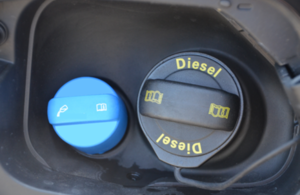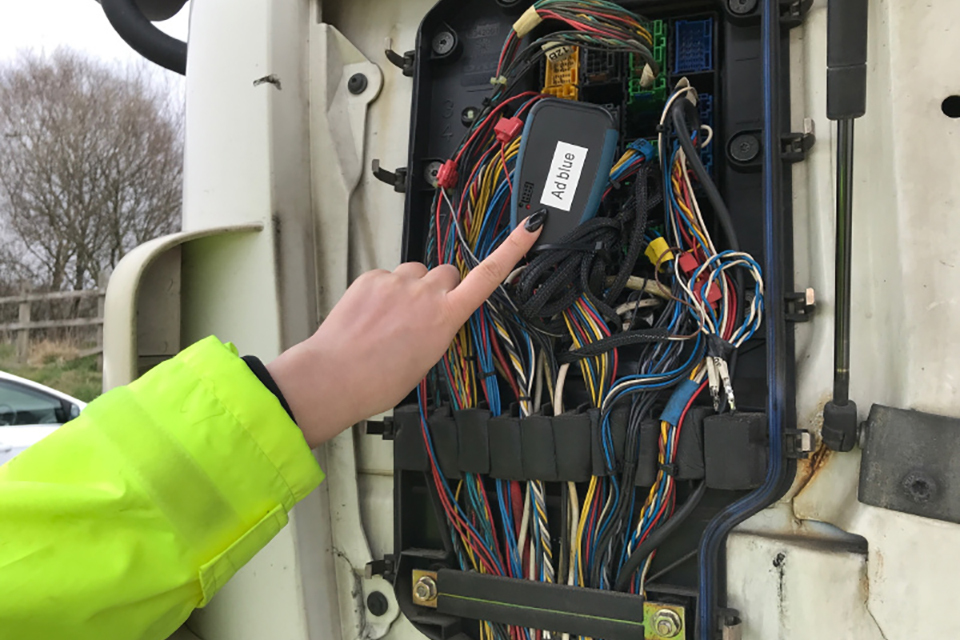Checks for lorry emission cheats start across Great Britain
Driver and Vehicle Standards Agency (DVSA) examiners will routinely check lorries they stop at the roadside for emissions cheat devices.

Image of diesel fuel cap and AdBlue cap
From 1 September 2018, DVSA enforcement staff across Great Britain will check lorries for emissions cheat devices.
Cheat devices mean a lorry can produce up to 20 times more dangerous emissions.
The national rollout of checks follows a successful year-long pilot. During the pilot, DVSA enforcement staff caught 449 emission cheats at 5 sites across the country.
Penalties for using a cheat device
Drivers caught with an emissions cheat device or a faulty emissions control system have 10 days to remove the device and repair their emissions system.
If they continue to use a device or fail to repair the system, they can be fined £300 and have their vehicle taken off the road.
DVSA will then carry out a follow-up investigation with the operator. DVSA can refer its findings to the Traffic Commissioners for Great Britain, who have the power to strip a company of its licence to operate.
Gareth Llewellyn, DVSA Chief Executive, said:
DVSA’s priority is protecting the public from unsafe drivers and vehicles.
A vehicle doesn’t have to be falling apart to be unsafe - any driver or operator who uses cheat devices to get around emissions rules is putting the health of the entire nation at risk.
DVSA will take the strongest possible action against anyone who tries to cheat emissions rules.
Report a driver or operator
You can report a driver or vehicle operator if you suspect they’re using an emissions cheat device.
How cheat devices work

DVSA examiners will be checking lorries for emissions cheat devices, such as the AdBlue emulator seen attached to this vehicle.
Cheat devices cut the cost of operating, but give false emissions readings. This can result in the release of excessive emissions into the atmosphere.
Some of the ways this is done include:
- using devices designed to stop emissions control systems from working
- removing the diesel particulate filter or trap
- using cheap, fake emission reduction devices or diesel exhaust fluid
- using illegal engine modifications which result in excessive emissions
- removing or bypassing the exhaust gas recirculation valve
Effect on public health
Poor air quality is the largest environmental risk to public health in the UK.
It’s known to have more severe effects on vulnerable groups, for example, the elderly, children and people already suffering from pre-existing lung and heart conditions.
Conditions caused or made worse by air pollution include:
- asthma
- chronic bronchitis
- chronic heart disease
- strokes